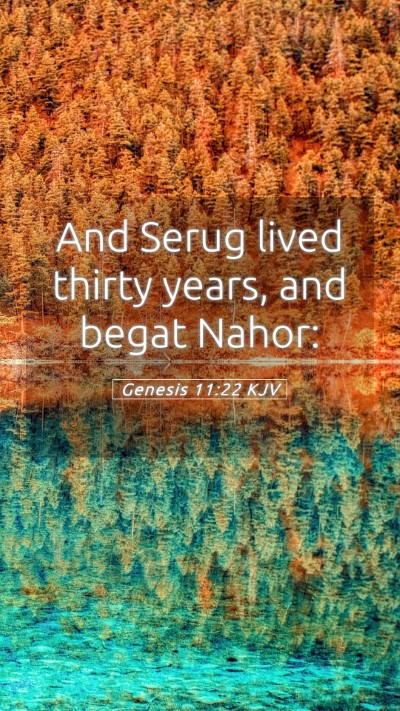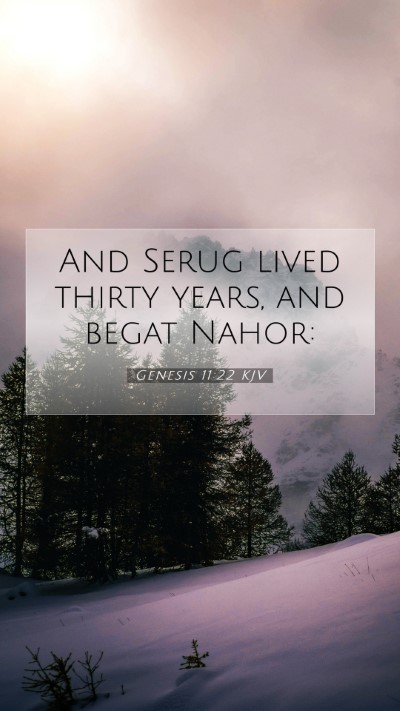Bible Verse Commentary on Genesis 11:22
Genesis 11:22 reads: "These are the sons of Shem. Their clans and their languages, in their territories and nations." This verse provides a genealogical record that connects Shem, one of Noah's sons, to many nations and languages, establishing a historical framework for understanding the post-Flood world.
Summary of Key Themes
- Genealogy: The importance of lineage in biblical texts.
- Diversity of Nations: The emergence of various nations and languages after the Flood.
- Sovereignty of God: God's plan in the dispersal of humanity.
Commentary Insights
Matthew Henry's Commentary
Matthew Henry emphasizes the significance of Shem’s descendants in biblical history, noting that they are integral to God’s plan for humanity. He points out that this genealogy demonstrates the fulfillment of God's command to "be fruitful and multiply" (Genesis 1:28) and reflects the blessings bestowed upon Shem as the line through which the covenant promise ultimately leads to Abraham, highlighting the importance of this lineage.
Albert Barnes' Commentary
Albert Barnes provides an analysis of the clans and languages mentioned in the text, stressing their relevance in understanding the dispersion of people across the earth. He ties this observation to the historical context of the Tower of Babel incident described in previous verses, suggesting that the origins of different languages are pivotal in understanding the complexity of human civilization and God's sovereignty in ordering the world.
Adam Clarke's Commentary
Adam Clarke points out the implications of the genealogies in scripture, suggesting that they show God’s providence in guiding the affairs of men. Clarke also remarks on the theological significance of the families and nations, interpreting this verse as a lead-in to the advent of the Hebrew nation through Shem, which is crucial for the unfolding narrative of Scripture, leading to the coming of Christ.
Understanding Scripture and Historical Context
To grasp the full meaning of Genesis 11:22, it's essential to consider the broader themes of human migration and divine intervention. This passage acts as a bridge connecting earlier narratives about the Babel incident, emphasizing God’s role in distinguishing peoples and languages. It illustrates the complexity of human relationships and civilizations that arise as God fulfills His purposes.
Application and Relevance
For modern readers, Genesis 11:22 serves as a reminder of the diversity within God's creation and the significance of heritage and identity among nations. It invites individuals to reflect on their backgrounds while acknowledging the larger family of humanity united under God's creative authority.
Cross References
- Genesis 10:21-32: The Table of Nations, which provides additional genealogical context.
- Genesis 11:1-9: The Tower of Babel narrative that explains the origin of diverse languages.
- Acts 17:26: Paul speaks on God's sovereignty in creating nations and determining their boundaries.
Concluding Thoughts
Genesis 11:22 is more than a list of names; it encapsulates God's ongoing narrative through history, reflecting on His covenant promises. Engaging with this verse allows for a deeper understanding of Scripture, evidencing God's faithfulness and divine order in an ever-changing world.


